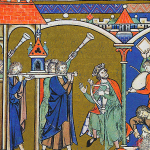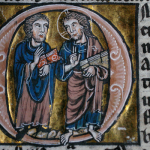Topeka, Kan., Apr 8, 2015 / 05:02 pm (CNA/EWTN News).- Kansas became on Tuesday the first state to ban abortions by a procedure known as “dilation and evacuation,” which is common during second-trimester abortions and is called “dismemberment abortion” in the law. Local pro-life advocates say the legislation is an opportunity to save the unborn from a horrific procedure, while providing a model for other states. “Some states have to take the lead. We’re proud to be one of those states,” Kathy Ostrowski, legislative director of Kansans for Life, told CNA April 8. “With very solid, carefully constructed laws I think we really can make a difference.” The procedure is used in about 600 abortions in Kansas annually, about nine percent of all abortions performed there, the Topeka Capital-Journal reports. Kansas Gov. Sam Brownback on April 7 said he was proud to sign a bill that protects life “at its most vulnerable stage,” and noted bipartisan support for the bill. The legislation, known as the Unborn Child Protection from Dismemberment Abortion Act, bans physicians from “knowingly dismembering a living unborn child and extracting such unborn child one piece at a time from the uterus through the use of clamps, grasping forceps, tongs, scissors or similar instruments that… grasp a portion of the unborn child’s body in order to cut or rip it off.” The law contains an exemption for medical emergencies or when a pregnant woman’s life is in danger. It also makes clear that a woman who seeks a dismemberment abortion is not liable under law. The law allows civil action against physicians who perform dismemberment abortions in violation of the law. Michael Schuttloffel, executive director of Kansas Catholic Conference, said the conference is “very, very pleased” to put a stop to the procedure in Kansas. “We’d like to see other states follow our lead,” he told CNA. The Kansas House of Representatives passed the bill by a vote of 98-26, while the Senate passed the bill by a vote of 31-9. Planned Parenthood Advocates of Kansas and Mid-Missouri, the local affiliate of the largest abortion provider in the U.S., said April 7 the law was “atrocious,” claiming that Kansas “continues to be an outlier on issues both fiscal and social.” It said the law denied health care access to women and hindered their ability to make decisions. Schuttloffel lamented that the bill was necessary and that some people still opposed the law. “It just defies belief that people would publicly get up and insist that people in Kansas be allowed to rip the arms and legs off of unborn children,” he said. He thought the abortion debate had become “disconnected from the reality of abortion” and legislation like the Kansas law can “help shock people out of complacency.” He said that even many pro-life Kansans couldn’t believe the procedure was happening in their state. “When it comes to this particular kind of abortion, people needed to hear exactly what was being done and what was being done: second trimester babies, we’re talking three, four, five months along in pregnancy, were being torn apart, limb from limb,” Schuttloffel continued. “There’s evidence that suggests the unborn child feels pain at that point. It’s just horrific.” In Ostrowski’s view, the U.S. Supreme Court has indicated such bills should be passed. The court, in 2007's Gonzales v. Carhart, described the type of late-term abortion involved as “brutal,” and found that the state has an interest in both protecting the integrity of the medical profession and “to show its profound respect for the life within the woman.” She said Kansas is a “very pro-life state,” with over 50 locations supporting pregnant women who have complications or who lack family support. “We’re bringing people into the pro-life movement. And now we’re passing laws with an excellent state legislature and a pro-life governor.” Other states with this kind of climate and pro-life support should pass these laws, Ostrowski said. The Oklahoma legislature is considering a similar bill, as are Missouri and South Carolina. Read more














